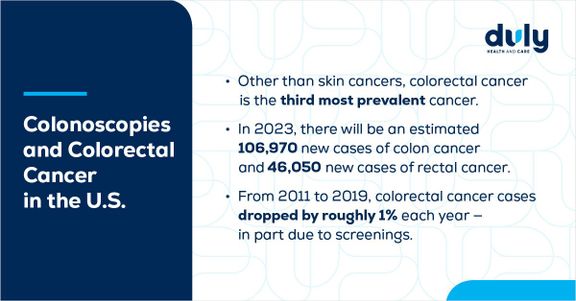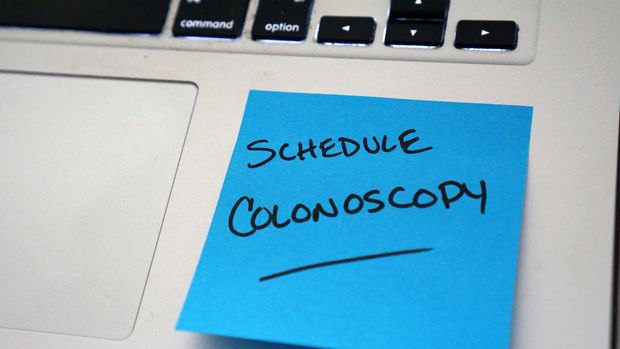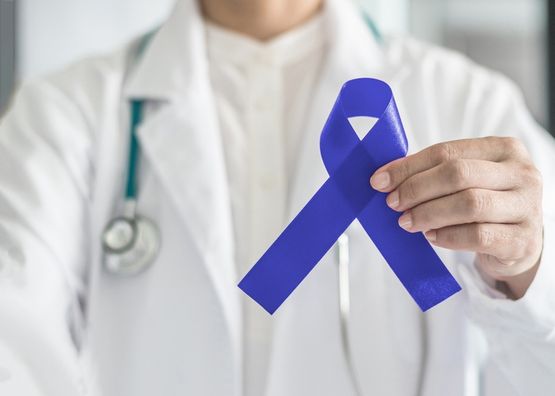Taking charge of your health means listening to your body. From noticing how you are feeling to monitoring unusual symptoms, checking in with yourself helps you get care when you need it. This is called diagnostic care — or care used to figure out what condition might be causing your symptoms.
Another important part of your health is called preventive care. This involves keeping potential health conditions at bay by taking steps to stay healthy, such as eating a well-balanced diet, getting regular exercise, and staying up to date with screening tests.
When it comes to colorectal cancer, preventive and diagnostic care work hand-in-hand. While screening colonoscopies are key to catching problems in their earliest stages before symptoms arise, a diagnostic colonoscopy is necessary when symptoms are already present. Screening or diagnostic approaches are even more important if you have a personal risk of colorectal cancer or certain medical conditions.

Here’s a breakdown of colonoscopies, including the difference between screening and diagnostic tests, and when to get each one.
Colorectal Cancer and Colonoscopies
Colorectal cancer is cancer that begins in the colon or the rectum. Sometimes, it’s referred to as colon cancer or rectal cancer, depending on where the cancer begins. However, since the two cancers have a lot in common, they’re usually grouped together as colorectal cancer.
Colonoscopies are one of the most effective ways to lower your risk of colorectal cancer.
During a colonoscopy, your provider will insert a long thin flexible tube (known as a colonoscope) with a light on it into your rectum. These procedures are typically done with sedation to ensure your comfort and safety during this exam. The goal of this test is to identify and remove polyps (pre-cancerous growth which can sometimes turn into cancer) or diagnose cancer when present.
Screening Colonoscopies: When You Don’t Have Symptoms
When it comes to cancer, the best-case scenario is to take steps to prevent it. A screening colonoscopy is done when you don’t have symptoms. This type of colonoscopy is highly effective because most colorectal cancers begin as abnormal growths in your colon or rectum called precancerous polyps. These polyps can exist for years before ever turning into cancer. However, they can also go unnoticed because they don’t always cause symptoms.
If your provider finds any of these polyps during a screening colonoscopy, they can usually be removed during the same procedure.
Most people should begin regular colorectal cancer screening at the age of 45. Some people with higher-risk family histories (family members with early colorectal cancer) or certain medical and genetic conditions may need to start their screening sooner than 45. It’s always important to discuss your individual colorectal cancer risk with your trusted medical provider who can then help you determine the best options for your care.
If no polyps are found on the initial screening exam, screening colonoscopies should be done every 10 years. If pre-cancerous polyps (adenomas) or cancer are found on a colonoscopy, your medical provider may advise performing a surveillance colonoscopy for closer monitoring sooner than 10 years. This is because there may be a higher risk for future polyp formation in people with a documented history of polyps. Since some polyps develop and progress faster in some individuals, performing a surveillance colonoscopy sooner (as advised by your provider) can help best ensure these growths are picked up and removed in their earliest stages.
Screening and surveillance colonoscopies may continue until age 76, at which point you should have a discussion with your provider regarding your overall well-being and healthcare goals. For healthy seniors with well-managed medical conditions, there may be a continued benefit to colorectal cancer screening up to age 85. Healthcare goals can change as we age, and it’s important to discuss these goals with your trusted medical provider.
If you need to schedule a screening or diagnostic colonoscopy, don’t wait. Make an appointment with a Duly Gastroenterologist to prioritize your colorectal health.
Diagnostic Colonoscopies: When Symptoms Arise
Unlike screening colonoscopies, diagnostic colonoscopies don’t follow a specific schedule. Instead, these studies are performed when symptoms arise or when needed for the management of certain medical conditions.
Reasons for a diagnostic colonoscopy include:
- Presence of visible blood in the stool
- Presence of invisible blood in the stool (usually detected by a stool test)
- Inflammatory Bowel Diseases (IBD), such as Crohn’s Disease or Ulcerative Colitis
- Unexplained anemia (low blood count), particularly with iron deficiency
- New changes in bowel habits (either diarrhea or constipation)
- Worsening abdominal discomfort or blockage symptoms
- Addressing other issues, such as placing a stent or removing objects in the colon
Colonoscopies Are The Best Prevention for Colorectal Cancer
Preventing colorectal cancer starts with screening. By staying up-to-date with these effective procedures, you can catch abnormalities before they become cancer or in their earliest stages.
You can also lower your risk of colorectal cancer by making healthy choices every day. Some of these choices might include making healthier choices with eating (emphasizing fresh fruits and vegetables as able, and reducing red meats or highly-processed foods), partaking in regular physical activity, limiting alcohol intake, and avoiding smoking.
Your health and wellness should be just as much a part of your routine as brushing your teeth in the morning. Whether your colonoscopies are screening, diagnostic, or both, you can rest assured that you’re taking steps to keep your colon healthy.
Health Topics:








